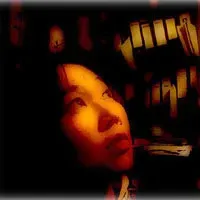TalkWrite: In Celebration of We-ness

By Renee Liang
It's lovely to be home, to feel the sun again, and wear flirty little skirts (yep) instead of the modified sleeping bags I was wearing in Japan. But while everyone else is still at the beach enjoying the school holiday swansong, (we) artists are already back at work. The Auckland Fringe is only a month away, the Wellington Fringe is virtually here and funding applications are due left, right and centre - who said this (unpaid) job was easy?By Renee Liang
It's lovely to be home, to feel the sun again, and wear flirty little skirts (yep) instead of the modified sleeping bags I was wearing in Japan. But while everyone else is still at the beach enjoying the school holiday swansong, (we) artists are already back at work. The Auckland Fringe is only a month away, the Wellington Fringe is virtually here and funding applications are due left, right and centre - who said this (unpaid) job was easy?But I'm not on here to whinge. I'm really excited that I'm going to be involved in a number of plays this year. And, strangely enough, the one thing they have in common is that they're all plays that talk about being Kiwi-Asian. Or, more accurately, the process of becoming Kiwi-Asian.
Looking at my work so far, one might be forgiven for thinking that I was obsessed with culture and identity. It's true that I spend a lot of time writing, editing and performing about these themes. Believe me, I write about a lot of other things, but this is the work that tends to get noticed. Which says something about what people are interested in talking about, right now.
You see, I happen to think that "New Zealander" is not a fixed state of being. With some sympathy for the nice but confused people from Statistics New Zealand, I think that 'Kiwi' is a floating definition, apt to change according to time, person and place. I'm tired of being asked how long I've been here, whether I 'like' being in New Zealand, or complimented on my surprising skill in my first language (English). I think a lot of other people are tired of it, too.
I'm currently part of a project called Asian Tales, a set of seven short plays written by, well, Asians. All the playwrights (bar one) are New Zealanders, but there's nothing particularly 'Kiwi' about the plays - if 'Kiwi' is defined as number 8 fencing wire, jandals and pav. Yet I'd argue that all of the plays are, in their own ways, quintessentially Kiwi. They all depict a small corner of the NZ way of life. Aren't market gardens, state highways and food halls now part of our heritage?
This week I interviewed Yee Yang 'Square' Lee, the producer of Asian Tales. Something he said rang particularly true for me: "Remember, it's INTEGRATION we are looking for, not ASSIMILATION. I don't want to be Kiwi like you. I want to be Kiwi like me. Or rather, like WE."
I think this is a very interesting concept. So, we don't have to sound like anyone else, or even how other people tell us we should sound. We can write what we feel like, and if that later changes, well then we write that too. What I will now choose to call 'We-ness' is an embracing idea that also celebrates difference. 'We-ness' asks everyone to comment on what it's like for them; the more people the better. Which is what The Big Idea site is, too: the more voices, the more opinion and ideas, the stronger it will be. And ditto for a nation.
One of the cool things about being a writer is that not only do we get to respond to a culture, but we also get to define it, label it, record it. And if we don't take our role seriously, someone else will. But 'ethnic' writers (remembering that everyone is ethnic, but some look more ethnic than others) labour under an additional load. Our colour may get our work more noticed, but it also puts pressure on us to 'represent', to write what audiences expect/demand, and not to offend anyone in the process. No pressure.
So. What's new? There's a need to define ourselves and equally, to change or challenge that definition. There's always some group starting to swim their way out of the murk and at the moment it's the Asian New Zealanders. But, should we really invoke the 'cultural' label? Because, as Maori and Pacific writers before us have found, it's a double-edged sword.
There was an interesting moment during a preshowing of some of the Asian Tales plays last year. One test audience member (himself a playwright) was heard to complain that the plays were not 'Asian' enough. Which was slightly confusing. I mean, the writers were Asian. The actors were Asian. Wait. Was he looking for some sort of inherent 'Asian-ness' to the plays themselves? And which country/dialect/generation/immigration cohort did he deem 'Asian' enough?
OK. I'll stop there, because in the end, this is an arts blog, and other bloggers are far more witheringly eloquent on this topic than I. But let me end this with a question, one I hope to get some answers to (you know how to comment). Does NZ need a 'cultural' literature?
Use the comment box below
29/01/09